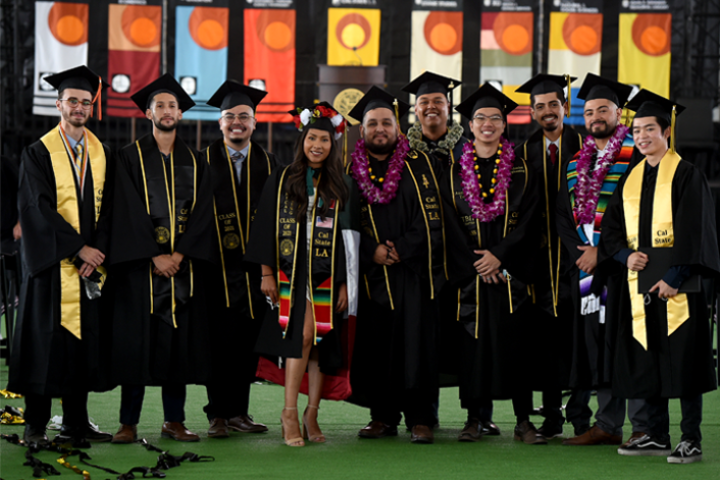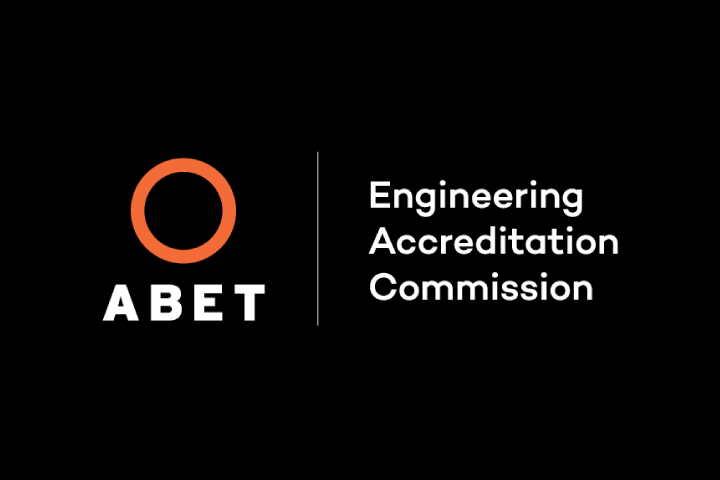
Electrical & Computer Engineering
On this page, you will find Cal State LA, Department of Electrical & Computer Science's educational program objectives and student learning outcomes, and access to the student enrollment and graduation demographics data provided by The Office of Institutional Effectiveness.
Program Educational Objectives
Educational objectives are broad statements describing the career and professional accomplishments the program is preparing graduates to achieve. Examine what Cal State LA Electrical and Computer Engineering program graduates are expected to attain within a few years of graduation by utilizing the knowledge gained from their academic program.
Undergraduate BSEE
The objectives of the BSEE program are to prepare graduates who will be successful in their chosen career paths. Electrical Engineering graduates are expected to attain careers in which they:
-
establish themselves as professional engineers in industrial and governmental positions or be engaged in advanced studies;
-
apply the knowledge, skills, and attitudes attained at Cal State LA to solve complex engineering problems which meet the needs of a range of audiences in their community locally and globally while making efficient use of available resources;
-
adhere to a high standard of ethics and contribute to an inclusive environment while leveraging their engineering judgment in their professional practice; and
-
cultivate collaborative environments where working together synergistically can outperform individualistic approaches.
(Rev. Program Educational Objectives 2023-2026)
Graduate MSEE
The objectives of the MSEE program are to prepare graduates who will be successful in their chosen career paths. Specifically, within a few years of graduation, Electrical Engineering graduates are expected to:
-
Establish themselves as professional engineers in industrial and governmental positions or be engaged in advanced studies;
-
Apply the knowledge, skills, and attitudes attained at CSULA to devise engineering solutions that meet the needs of their community locally and globally while making efficient use of available resources; and
-
Adhere to a high standard of ethics in their engineering profession.
(Rev. Program Educational Objectives 2012-2017)
Student Learning Outcomes
Student learning outcomes describe the specific, measurable knowledge, values, or skills that students will be able to demonstrate upon completing the academic program. Examine what our graduates acquire upon completing the Cal State LA Electrical & Computer Engineering Bachelor of Science and Master of Science Programs.
Student Learning Outcomes for BSEE
To ensure that our graduates meet the program's educational objectives, the following student outcomes shall be achieved by the time of their graduation:
- an ability to identify, formulate, and solve complex engineering problems by applying principles of engineering, science, and mathematics
- an ability to apply engineering design to produce solutions that meet specified needs with consideration of public health, safety, and welfare, as well as global, cultural, social, environmental, and economic factors
- an ability to communicate effectively with a range of audiences
- an ability to recognize ethical and professional responsibilities in engineering situations and make informed judgments, which must consider the impact of engineering solutions in global, economic, environmental, and societal contexts
- an ability to function effectively on a team whose members together provide leadership, create a collaborative and inclusive environment, establish goals, plan tasks, and meet objectives
- an ability to develop and conduct appropriate experimentation, analyze and interpret data, and use engineering judgment to draw conclusions
- an ability to acquire and apply new knowledge as needed, using appropriate learning strategies.
Student Learning Outcomes for MSEE
To ensure that our MSEE graduate achieves the program's educational objectives, the following student outcomes shall be achieved by the time of graduation:
- Ability to demonstrate information and technology literacy and acquire knowledge to solve contemporary Electrical and Computer Engineering problems.
- Ability to design, perform experimentation, simulation, and in-depth analysis in order to conduct research or projects in Electrical and Computer Engineering.
- Ability to demonstrate critical thinking based on major theories, concepts, or evidence in the evaluation and communication of arguments in Electrical and Computer Engineering
- Ability to work independently and in collaboration with others with diverse perspectives, assumptions, and conventions.
- Ability to recognize ethical and professional responsibilities in engineering situations and make informed judgments, which must consider the impact of engineering solutions in global, economic, intellectual, environmental, and societal contexts.
Enrollment & Graduation Data
The Office of Institutional Effectiveness (IE) provides high-quality data, analytical tools, strategic analysis, and partnership-based education and collaboration to foster a University culture of data-informed decision-making. Student enrollment and graduation demographics data are available on the Cal State LA Institutional Effectiveness website. To view the information, please select Engr, CS, & Technology under "College" and Electrical & Computer Engineering under "Department."

The program leading to the Bachelor of Science degree in Electrical Engineering is accredited by the Engineering Accreditation Commission of ABET, https://www.abet.org, under the commission’s General Criteria and Program Criteria for Electrical, Computer, Communications, Telecommunications(s), and Similarly Named Engineering Programs.
DEPARTMENT OF ECE
Arlette Hattar, Department Coordinator
5151 State University Drive, Los Angeles, CA 90032 | E&T A-342
TEL: (323) 343-4470 | FAX: (323) 343-4547 | Email: [email protected]
Hours of Operation: 9:00 am to 5:30 pm, Monday through Friday